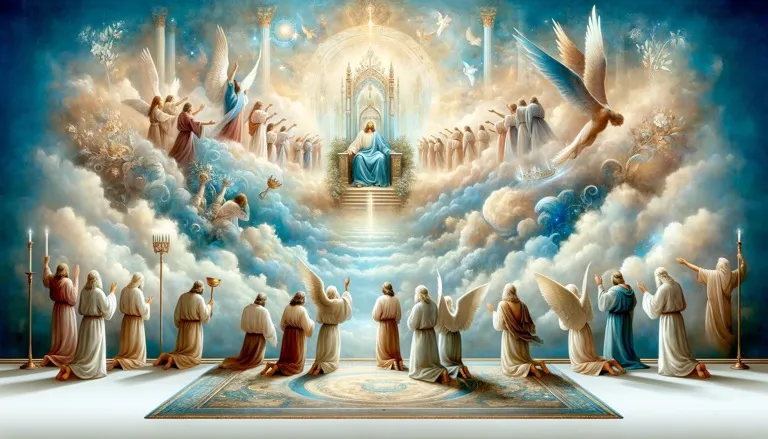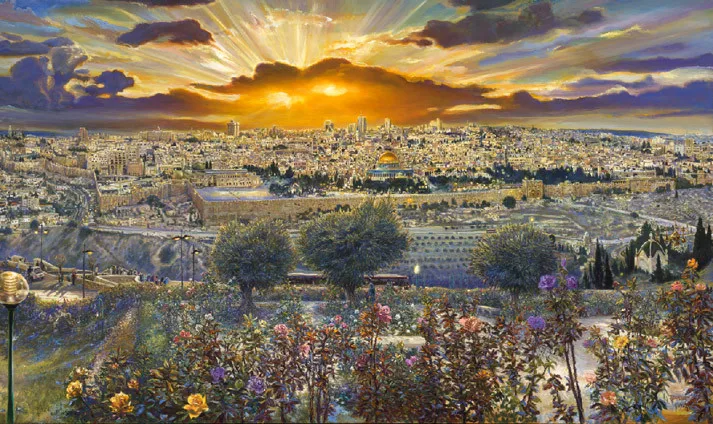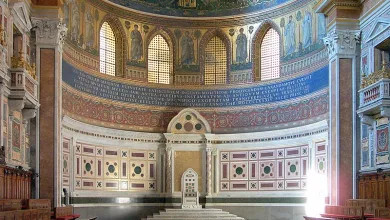What Will Heaven Be Like?
Future resurrections will result in final judgments, and final judgments will confirm final, everlasting destinies for both the righteous and the unrighteous.
Tragically, the unrighteous will spend eternity separated from God in hell, being punished for their sins and unbelief. Most references to hell are in the Synoptic Gospels (Matthew, Mark, and Luke) and are from Jesus himself (e.g., Matthew 5:21–30; Mark 9:43–48; Luke 12:5). He described hell as a terrible reality of suffering and despair, and therefore, his clear warning was to do whatever is necessary to avoid it.
The English word hell is used to translate two Greek words: hades and gehenna. Hades seems to be where the unrighteous are sent to be punished while they wait for their final judgment (e.g., the rich man of Luke 16:19–31); it is temporary. However, according to Revelation 20:14, death and Hades will be thrown into the lake of fire in the final judgment. So it seems the lake of fire is the more specific way to refer to the eternal destiny of the unrighteous (v. 15).

The Greek word gehenna seems to be the New Testament reference to this eternal destiny. The term is derived from the Valley of Hinnom, adjacent to Jerusalem. It was a place of Old Testament idol worship that became the city’s garbage dump, where the bodies of executed criminals would be thrown. So the imagery is of a pit of constant burning, smoke, fire, and destruction, and this is exactly how the New Testament describes the eternal dwelling of the wicked: It is a “blazing furnace, where there will be weeping and gnashing of teeth” (Matthew 13:42; see also 8:12; 25:41; Revelation 21:8).
Regardless of whether these terms and descriptions are to be taken literally (punishment will consist of actual fire) or metaphorically (punishment will be terrible and painful, like that of fire), hell is a place of unimaginably horrible suffering.
Some do not believe the unrighteous will suffer in punishment forever. According to the view called annihilationism, God will eventually annihilate the unrighteous; they will cease to exist after a period of punishment. The arguments used for annihilation include the following:
First, because God is love, he will not be able to tolerate the never-ending, conscious anguish of those who bear his image.
Second, the finite sins committed by the unrighteous do not deserve infinite or everlasting punishment.
Third, the biblical terms for this punishment include “destruction” and “fire,” both of which imply an end of existence.
Some who hold this view also adhere to “conditional immortality,” the belief that no one is inherently immortal; rather, God gives immortality as a gift of salvation to the righteous. So the unrighteous were never immortal and will therefore cease to exist at some point.

The traditional view, however, is that the punishment of the unrighteous will indeed be unending. The strongest biblical argument for this and against annihilationism is Matthew 25:46, where Jesus said, “Then [the unrighteous] will go away to eternal punishment, but the righteous to eternal life.” The word eternal is applied to both destinies. If the righteous enjoy life that lasts forever (which the Bible clearly, repeatedly affirms), then it seems necessary to conclude that the punishment of the unrighteous will likewise be forever. Other texts also speak of this punishment as being eternal (Matthew 18:8; 25:41; Mark 9:48; 2 Thessalonians 1:9; Revelation 14:11; 20:10).
Scripture does seem to establish eternal punishment for the unrighteous but also seems to imply that there will be degrees of punishment, the very wicked being punished more severely than the lesser wicked. This would be the purpose of judging the unrighteous according to their works (Matthew 16:27; Revelation 20:12–13). For example, those who have heard the gospel and rejected it will be punished more severely than those who have never heard the gospel (an implication of Matthew 11:20–24).
Whereas the eternal destiny of the unrighteous will be separation from God forever, the righteous will be in God’s presence forever. The term heaven has been traditionally associated with the eternal dwelling of God’s people. In addition to being used of physical reality (earth’s atmosphere and outer space), it also refers to a spiritual realm, the dwelling of God and angels. This is where Jesus went after his ascension (Luke 22:69; Acts 7:55; Romans 8:34) and where the righteous go after physical death to await their resurrection (Luke 23:43; 2 Corinthians 5:8; Philippians 1:23; 1 Thessalonians 4:14).
However, after the resurrection of the righteous and in eternity, their dwelling seems to be the new heaven and the new earth (Isaiah 65:17; 66:22; 2 Peter 3:13; Revelation 21), which will replace the old heaven and earth after the final judgment (2 Peter 3:10). The new heaven and earth will probably be a renewal (rather than replacement) of the original creation, but with all the destructive effects of sin and the curse removed (Romans 8:19–21; Revelation 22:3).
God declared his original creation to be “very good” (Genesis 1:31), and his work bringing about the new heaven and earth will restore his creation to that state. It will be “paradise” (Revelation 2:7), like the garden of Eden. In fact, Revelation (21–22) picks up concepts from Genesis 1–3, indicating that God does complete what he had intended to accomplish in his work of creation (see the “Fun Fact” at the end of chapter 20 in Understanding Your Bible in 15 Minutes a Day).
The eternal state will also include the New Jerusalem. John wrote, “I saw the Holy City, the new Jerusalem, coming down out of heaven from God, prepared as a bride beautifully dressed for her husband” (Revelation 21:2; more in vv. 10–27). It is immense—fourteen hundred miles in three dimensions.
It is brilliant with the glory of God, constructed of precious metals and jewels. It will have no temple, because God will be the temple, and there will be no sun, because his glory will supply the light. This will be a place in which death, tears, sorrow, and pain are excluded. It will be a place of holiness, life, service (22:3), fulfillment, and joy—perfection. This is the inheritance of God’s people (21:7), where they will reign with him forever (22:5). Some believe the New Jerusalem is what brings heaven and earth together forever.

The real significance of all this was revealed to John in this way:
God’s dwelling place is now among the people, and he will dwell with them. They will be his people, and God himself will be with them and be their God.
21:3
This was God’s intention from the beginning, as demonstrated by his fellowship with Adam and Eve in the garden of Eden (Genesis 3:8). But the entrance of sin into creation resulted in a separation between holy God and sinful humanity (3:23–24).
God’s desire to dwell among his people was also demonstrated in the tabernacle (Exodus 25:8). The prophets reminded them of his intention to dwell among them (Ezekiel 37:26–28). He now dwells among his people by dwelling within them through his Holy Spirit (1 Corinthians 3:16; 2 Corinthians 6:16). And his intention will be fully realized in the eternal state. This is the greatest salvation benefit of all—to enjoy a perfect and unhindered relationship with God.
God’s people “will see his face” (Revelation 22:4)! They will experience the reality of David’s words in Psalm 16:11:
In Your presence is fullness of joy;
In Your right hand there are pleasures forever.
NASB
Is there any wonder why the book of Revelation ends with the plea, “Come, Lord Jesus” (22:20)?
INTERESTING SUGGESTION
I will end this chapter in the same way I ended chapter 6: It is my belief that eternity will be an unending theology class. Every day of eternity, God will reveal another aspect of his infinitely glorious being for the joy of his people. I still can’t wait!
Epilogue
You have merely dangled your toes in the deep ocean of the amazing things of God. I hope you have enjoyed this book and benefited from it. But even more so, I hope you are desperate for more and will continue to go deeper into the truth and explore its mysteries for the rest of your life. And I hope you too look forward to the ongoing theology class called eternity.
NASB New American Standard Bible
Aaron, D. (2012) Understanding Theology in 15 Minutes a Day. Minneapolis, MN: Bethany House Publishers, pp. 206–211.



